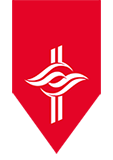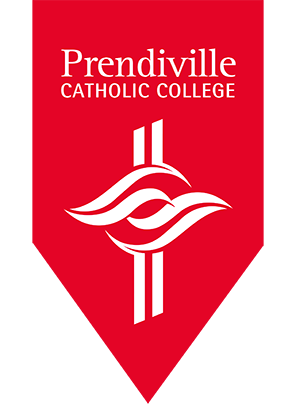Physical Education

Physical Education
Year 11
Open the panels below for further details.
Physical Education (ATAR)
Study of the Physical Education Studies ATAR course contributes to the development of the whole person. It promotes the physical, social and emotional growth of students. Throughout the course, emphasis is placed on understanding and improving performance in physical activities. The integration of theory and practice is central to studies in this course.
The Physical Education Studies ATAR course focuses on the complex interrelationships between motor learning and psychological, biomechanical and physiological factors that influence individual and team performance. Students engage as performers, leaders, coaches, analysts and planners of physical activity. Physical activity serves both as a source of content and data and as a medium for learning. Learning in the Physical Education Studies ATAR course cannot be separated from active participation in physical activities, and involves students in closely integrated written, oral and physical learning experiences, based upon the study of selected physical activities.
The course appeals to students with varying backgrounds, physical activity knowledge and dispositions. Students analyse the performance of themselves and others, apply theoretical principles and plan programs to enhance performance. Physical activity and sport are used to develop skills and performance along with an understanding of physiological, anatomical, psychological, biomechanical and skill learning applications.
The course prepares students for a variety of post-school pathways, including immediate employment or tertiary studies. It provides students with an increasingly diverse range of employment opportunities in the sport, leisure and recreation industries, education, sport development, youth work, and health and medical fields linked to physical activity and sport. The course also equips students to take on volunteer and leadership roles in community activities.
Course Content: This course is 70% theory and 30% practical.
- Developing physical skills and tactics
- Motor learning and coaching
- Functional anatomy
- Biomechanics
- Exercise physiology
- Sport psychology
Prerequisite: Achievement of a C Grade in Year 10 Advanced Physical Education, with a minimum of 50% attained in the theoretical component. Students who have not completed Year 10 Advanced Physical Education need to attain a B Grade in Year 10 Science.
This is a rigorous course for students on an ATAR pathway. Students who wish to engage in a subject with less theory and more practical sport focus, should enrol in General Physical Education Studies (outlined below).
Physical Education (General)
The Physical Education Studies General course contributes to the development of the whole person. It promotes the physical, social and emotional growth of students. Throughout the course, emphasis is placed on understanding and improving performance in physical activities. The integration of theory and practice is central to studies in this course.
The Physical Education Studies General course focuses on the complex interrelationships between motor learning and psychological, biomechanical and physiological factors that influence individual and team performance. Students engage as performers, leaders, coaches, analysts and planners of physical activity. Physical activity serves both as a source of content and data and as a medium for learning. Learning in the Physical Education Studies General course cannot be separated from active participation in physical activities and involves students in closely integrated written, oral and physical learning experiences based upon the study of selected physical activities.
The course appeals to students, with varying backgrounds, physical activity knowledge and dispositions. Students analyse the performance of themselves and others, apply theoretical principles and plan programs to enhance performance. Physical activity and sport are used to develop skills and performance, along with an understanding of physiological, anatomical, psychological, biomechanical and skill learning applications.
The course prepares students for a variety of post‐school pathways, including immediate employment or tertiary studies. It provides students with an increasingly diverse range of employment opportunities in the sport, leisure and recreation industries, education, sport development, youth work and health and medical fields linked to physical activity and sport. The course also equips students to take on volunteer and leadership roles in community activities.
Course Content: This course is 50% practical and 50% theory.
- Developing physical skills and tactics
- Motor learning and coaching
- Functional anatomy
- Biomechanics
- Exercise physiology
- Sport psychology
Prerequisite: Nil. An interest and willingness to participate in physical activity.
Certificate II Sport & Recreation
VET SIS20115 : To be completed in one year.
This qualification reflects the role of individuals who apply the skills and knowledge to work in the sport and recreation industry in areas such as maintaining grounds and playing surfaces, providing customer service, housekeeping and or administrative assistance. This qualification also provides for multi-skilled roles, which combine a range of activities required to support the operation of facilities such as fitness centres, outdoor sporting grounds or complexes, aquatic centres and community recreation centres. All job roles are performed under supervision with some degree of autonomy.
Topics covered:
Umpiring/Officiating
Conditioning for Sport
Conduct Sport & Recreation Sessions
Equipment Maintenance & Hire
First Aid
Safe Working in Sports Environment
Additional Qualifications Gained: Senior First Aid
Prerequisites: Students should demonstrate an interest in outdoor activities and possess reasonable swimming ability. This qualification requires a substantial amount of theory work, due to the expectations to be qualified and employable at this level.
Pathways Information: This qualification could lead onto Certificate III in Sport & Recreation in Year 12. These qualifications could then lead to occupational roles/functions within Community Recreation, Fitness, Outdoor Recreation, Sport Industry or Australian Apprenticeship pathway. Such job roles could include recreation assistant, administration assistant, retail assistant.
Employability Skills: Employability skills required by the sport and recreation industry for this qualification include: communication, initiative and enterprise, learning, planning and organising, problem-solving, self-management, teamwork, technology.
Auspicing: Our College has an auspicing arrangement with IVET for this qualification; students will be enrolled with this Registered Training Organisation (RTO). All students will be inducted into RTO requirements at the beginning of the year and will require a USI number before commencing the course.
Course Fee: A student choosing to complete this qualification at Prendiville Catholic College will be charged a subject levy which absorbs the delivery costs of completing the qualification from the RTO (Registered Training Organisation). A subject levy plus activity fees (approx. $450) per student will be incurred.


